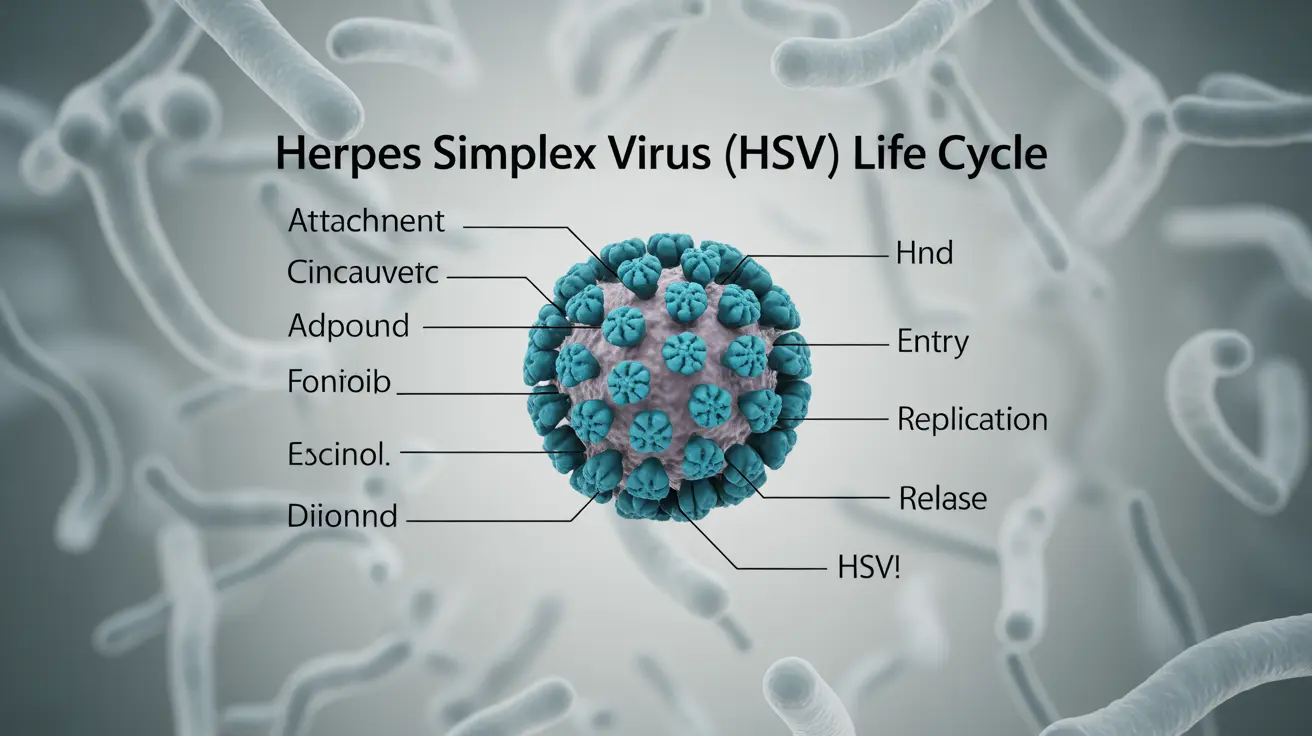Herpes simplex virus (HSV) is a common viral infection that affects millions of people worldwide. This persistent virus can cause recurring outbreaks of sores and other symptoms, primarily affecting either the mouth and lips (HSV-1) or the genital area (HSV-2). Understanding the nature of herpes simplex, its symptoms, and management options is crucial for both those affected and their partners.
While herpes simplex is a lifelong condition, modern medical treatments and preventive strategies can help individuals effectively manage symptoms and reduce transmission risks. This comprehensive guide explores everything you need to know about herpes simplex infections.
Types and Causes of Herpes Simplex
There are two main types of herpes simplex virus:
- HSV-1 (oral herpes): Typically causes cold sores around the mouth
- HSV-2 (genital herpes): Usually affects the genital area
Both types spread through direct contact with infected skin or bodily fluids. While HSV-1 traditionally causes oral infections and HSV-2 causes genital infections, either type can affect either location through oral-genital contact.
Recognizing Herpes Simplex Symptoms
The symptoms of herpes simplex can vary significantly between individuals. Common signs include:
- Tingling or burning sensation before sores appear
- Small, fluid-filled blisters that may break and form ulcers
- Itching or pain in the affected area
- Flu-like symptoms during initial outbreaks
- Swollen lymph nodes
- Headache and fatigue
The first outbreak is typically the most severe, with subsequent episodes generally being milder and shorter in duration.
Diagnosis and Testing
Healthcare providers typically diagnose herpes simplex through:
- Visual examination of sores
- Viral culture of fluid from blisters
- Blood tests to detect HSV antibodies
- PCR testing to identify viral DNA
Early diagnosis enables prompt treatment and better management of symptoms.
Treatment Options
While there's no cure for herpes simplex, several treatment approaches can help manage the condition:
Antiviral Medications
Prescription antiviral medications form the cornerstone of treatment:
- Acyclovir
- Valacyclovir
- Famciclovir
These medications can reduce outbreak frequency, severity, and duration when taken as prescribed.
Supportive Care
Additional measures to manage symptoms include:
- Keeping the affected area clean and dry
- Applying cold compresses to sores
- Taking over-the-counter pain relievers
- Wearing loose-fitting clothing during outbreaks
Prevention and Risk Reduction
Several strategies can help prevent transmission:
- Avoiding intimate contact during outbreaks
- Using barrier protection during sexual activity
- Maintaining good hygiene practices
- Taking daily suppressive antiviral therapy if recommended
- Having open communication with partners about infection status
Frequently Asked Questions
What are the common symptoms and signs of herpes simplex infection?
Common symptoms include tingling or burning sensations, small fluid-filled blisters, ulcers, itching, and pain in the affected area. Initial outbreaks may also include flu-like symptoms such as fever, headache, and swollen lymph nodes.
How is herpes simplex virus infection diagnosed and treated?
Diagnosis typically involves visual examination, viral cultures, blood tests, or PCR testing. Treatment includes antiviral medications like acyclovir, valacyclovir, or famciclovir, along with supportive care measures to manage symptoms.
Can herpes simplex virus be transmitted even when there are no visible sores?
Yes, herpes simplex can spread through asymptomatic viral shedding, even when no visible symptoms are present. This is why consistent preventive measures are important regardless of visible outbreaks.
What steps can I take to prevent spreading genital or oral herpes to my partner?
Key prevention steps include avoiding intimate contact during outbreaks, using barrier protection, taking prescribed antiviral medications, maintaining good hygiene, and having open discussions with partners about infection status and risks.
How do antiviral medications help manage herpes simplex outbreaks and reduce transmission risk?
Antiviral medications work by suppressing viral replication, which can reduce the frequency, severity, and duration of outbreaks. When taken daily as suppressive therapy, these medications can also lower the risk of transmission to partners by reducing asymptomatic viral shedding.




